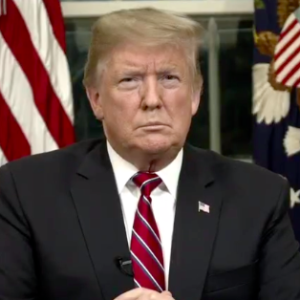More than any other president in recent memory, President Trump defended American innovators against attacks by foreign governments. But sadly, in one of his last moves as president, he put foreign price controls on U.S. drugs.
The Trump administration just announced new regulations that change how Medicare pays for prescription drugs. Up until now, this massive government health insurer paid for drugs in a free market setting. But under President Trump’s new regulations, Medicare payments will be set based on prices paid by a group of other industrialized countries.
All these countries have price controls in their national healthcare systems.
When he signed the executive order that led to these regulations, President Trump rightly complained that “other countries have rigged the system so that American patients are charged much more… for the exact same drug.” This is true. But it ignores the real cause of this injustice — price controls.
Foreign countries impose arbitrary price caps on prescription drugs. In France, an agency known as the Economic Committee of Health Care Products sets drug prices. In Canada, an organization known as the Patented Medicine Prices Review Board performs the same role.
Many people don’t realize the price-control function of these governmental agencies because their bureaucrats say they “negotiate” prices with U.S. pharmaceutical innovators. In reality, there is no real negotiation.
When a government is the sole purchaser of all prescription drugs in a country, it has a legal monopoly over the entire market.
If pharmaceutical companies don’t accept a foreign government’s low-ball offer, officials simply block them from selling their drugs in the country. With that power, the government dictates whatever artificially low price it wishes to pay.
These price controls hurt U.S. pharmaceutical companies by depriving them of the revenue necessary to pay their scientists, to research new treatments, and to develop the drugs that have brought an end to misery and saved millions of lives — from diabetes to hepatitis to cancer.
American patients pay more for drugs to make up the difference — economists call this “cost shifting.” So when President Trump condemned foreign governmental healthcare systems for “freeloading on the backs of American patients,” he was absolutely right.
Importing price controls just makes this crisis worse. It destroys the ability of the biopharmaceutical sector to produce the medical marvels of the modern age. Patients lose a lot in exchange for artificially low prices.
It costs $2.6 billion on average over 10 to 15 years to develop a single new drug. Just 12 percent of new drugs make it to final approval. Free-market principles, along with effective patent rights, make this investment worth the risks. Two-thirds of all new drugs are created by U.S. innovators.
Medicare now accounts for more than 40 percent of payments for hospital care in the U.S., and this is expected to only increase. By adopting foreign price controls, Medicare will pay the same artificially low prices as freeloading foreign countries. This will have a massive impact.
Similar to other markets with just one buyer, importing foreign price controls will end the $129 billion invested annually by the pharmaceutical sector to create new drugs. Breakthrough treatments for cancer, Alzheimer’s, heart disease, and other debilitating conditions will become less common — or disappear outright.
For too long, foreign governments have devalued drug innovation. They have legally imposed artificially low prices. Worse, they have had their cake and eaten it too — taking the benefits of U.S. drug innovation, refusing to pay for it and leaving U.S. patients to foot the remaining bill.
The Medicare reference pricing regulations won’t end this injustice.
They merely make the U.S. a guilty party in foreign price-control schemes that undermine the colossal amount of research and labor that bring medical miracles to patients.
President Trump’s new price-control regulations treat the disease as the cure — and the consequences will be disastrous.

